Table of Contents
Bitcoin transactions are a fundamental aspect of the blockchain network, allowing for secure and transparent transfers of cryptocurrency. However, the security of these transactions relies heavily on the number of confirmations they receive.
When a new transaction is made, it is broadcast to the network, where it is verified by nodes and included in a block. The number of confirmations a transaction receives is crucial in ensuring its validity and preventing double-spending.
The importance of understanding transaction confirmation requirements cannot be overstated, as it directly impacts the security and reliability of bitcoin transactions. This guide will provide comprehensive information on confirmations, from basic concepts to practical recommendations, helping you navigate the complexities of transaction security.
Understanding Bitcoin Confirmations
Understanding how Bitcoin confirmations work is essential for grasping the security mechanisms behind the Bitcoin network. Bitcoin confirmations are a measure of how many times a transaction has been verified by the network.
What Is a Bitcoin Confirmation?
A Bitcoin confirmation occurs when a transaction is included in a block and added to the Bitcoin blockchain. This process involves miners validating transactions by solving complex mathematical problems and bundling them into blocks. Each new block added to the chain provides an additional confirmation for the transactions contained within.
How the Confirmation Process Works
Roughly every ten minutes, a new block is created and added to the blockchain through mining. The transactions within this block are then considered confirmed by the Bitcoin network. The first confirmation occurs when a transaction is initially included in a block, and subsequent confirmations accumulate as new blocks are added.
Why Bitcoin Confirmations Matter
Understanding why Bitcoin confirmations matter is essential for users and merchants alike. Bitcoin confirmations are a critical component of the Bitcoin network, ensuring the integrity and security of transactions.
Preventing Double-Spending
Confirmations help prevent double-spending by ensuring that each Bitcoin can only be spent once. When a transaction is confirmed, it is added to the blockchain, making it virtually impossible to alter or reverse.
Ensuring Transaction Legitimacy
Multiple confirmations provide assurance to merchants and payment recipients that funds are legitimate. With each additional confirmation, the transaction becomes increasingly secure.
Enhancing Network Security
The confirmation system contributes to the overall security and trustworthiness of the Bitcoin network. By eliminating the need for trusted third parties, confirmations create a cryptographically secure verification system.
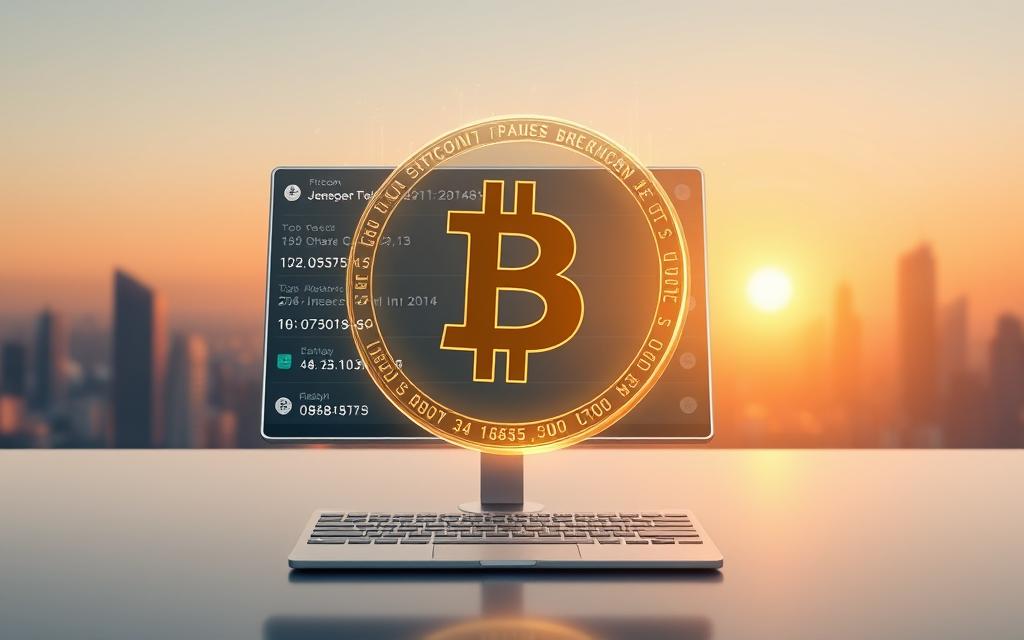
How Many Confirmations for Bitcoin Transactions Are Required
The number of confirmations required for Bitcoin transactions varies based on the transaction amount, with different thresholds for small, medium, and large transactions.
Small Transactions (Under $1,000)
For small Bitcoin payments less than $1,000, one confirmation is typically enough. This is because the risk associated with such transactions is relatively low. Most merchants and services accept transactions with just one confirmation for smaller amounts.
Medium Transactions ($1,000-$10,000)
For payments between $1,000 and $10,000, three to six confirmations are recommended. Most exchanges require at least three confirmations for deposits to ensure the transaction is secure. This provides a balance between security and the need for timely transaction processing.
Large Transactions (Over $10,000)
For large payments over $10,000, six confirmations are standard to be considered secure. For extremely large transactions (over $1,000,000), waiting for up to 60 confirmations is suggested for maximum security. This significantly reduces the risk of double-spending and ensures the transaction’s legitimacy.
Different cryptocurrency exchanges and services have varying confirmation requirements. Users should determine the appropriate number of confirmations based on their specific transaction needs and risk tolerance.
The Time Factor: How Long Do Confirmations Take?
Understanding the time it takes for Bitcoin transactions to confirm is crucial for users. The Bitcoin protocol is designed to produce new blocks approximately every 10 minutes, which is the average time for one confirmation.
Standard 10-Minute Block Time
The standard block time is a fundamental aspect of the Bitcoin network, providing a consistent benchmark for transaction confirmation. On average, it takes about 10 minutes for a transaction to be confirmed, as this is the time it takes for a new block to be added to the blockchain. This 10-minute block time is a target set by the Bitcoin protocol, and it serves as the basis for understanding the confirmation process.
Variations in Confirmation Speed
While the standard block time is 10 minutes, the actual confirmation time can vary significantly based on network conditions and other factors. For instance, during periods of high network congestion or when there are significant changes in the network hash rate, confirmation times can be longer. A notable example is the June 2021 mining ban in China, which caused a substantial drop in the total hash rate. The table below illustrates how confirmation times can vary under different conditions.
| Network Condition | Average Confirmation Time | Number of Confirmations | Total Time |
|---|---|---|---|
| Normal | 10 minutes | 1 | 10 minutes |
| Normal | 10 minutes | 6 | 60 minutes |
| Congested | 20 minutes | 1 | 20 minutes |
| Congested | 20 minutes | 6 | 120 minutes |

Factors Affecting Bitcoin Confirmation Time
The time it takes for a Bitcoin transaction to be confirmed is influenced by several key factors that can significantly impact the overall user experience. Understanding these elements is crucial for managing expectations and optimizing transaction processing.
Network Congestion
Network congestion occurs when the Bitcoin network is overwhelmed with a high volume of transactions. For instance, in December 2023, the network recorded an all-time high of 724,000 transactions in a single day, leading to significant delays. When the network is congested, transactions take longer to be confirmed.
Transaction Fees
Transaction fees play a critical role in determining how quickly a transaction is confirmed. Miners prioritize transactions with higher fees, as these are more profitable. Thus, users who pay higher transaction fees can expect faster confirmations.
Block Size Limitations
The Bitcoin network has a block size limitation of 1MB, which can store approximately 2,000 transactions per block. When the number of transactions exceeds this capacity, subsequent transactions are delayed until the next block is available.
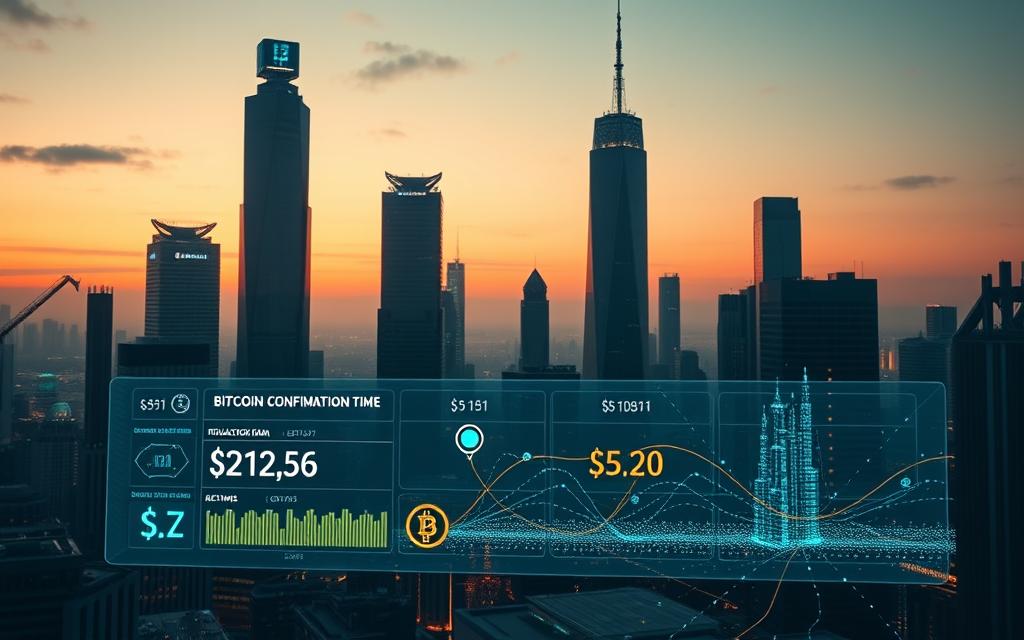
| Factor | Impact on Confirmation Time |
|---|---|
| Network Congestion | Increases confirmation time due to high transaction volume |
| Transaction Fees | Higher fees result in faster confirmation times |
| Block Size Limitations | Creates a bottleneck, delaying transactions when capacity is reached |
How to Check Your Bitcoin Transaction Confirmations
Checking the number of blockchain confirmations for a Bitcoin transaction is essential for verifying its legitimacy on the blockchain. To do this, you can use a block explorer, a tool that allows you to search for and view information about transactions on the blockchain.
Using Block Explorers
Popular block explorers like Blockchain.com, Blockstream.info, and BTC.com provide detailed information about transaction confirmations. To check the confirmation status, simply paste the transaction ID into the search bar of a block explorer.
- Locate the transaction ID in your wallet or transaction history.
- Paste the ID into a block explorer’s search bar.
- View the number of confirmations and other transaction details.
Wallet Confirmation Tracking
Most Bitcoin wallets display confirmation information and allow users to access this data. The confirmation status is often visually represented in various wallet interfaces, making it easy to track the progress of your transaction.
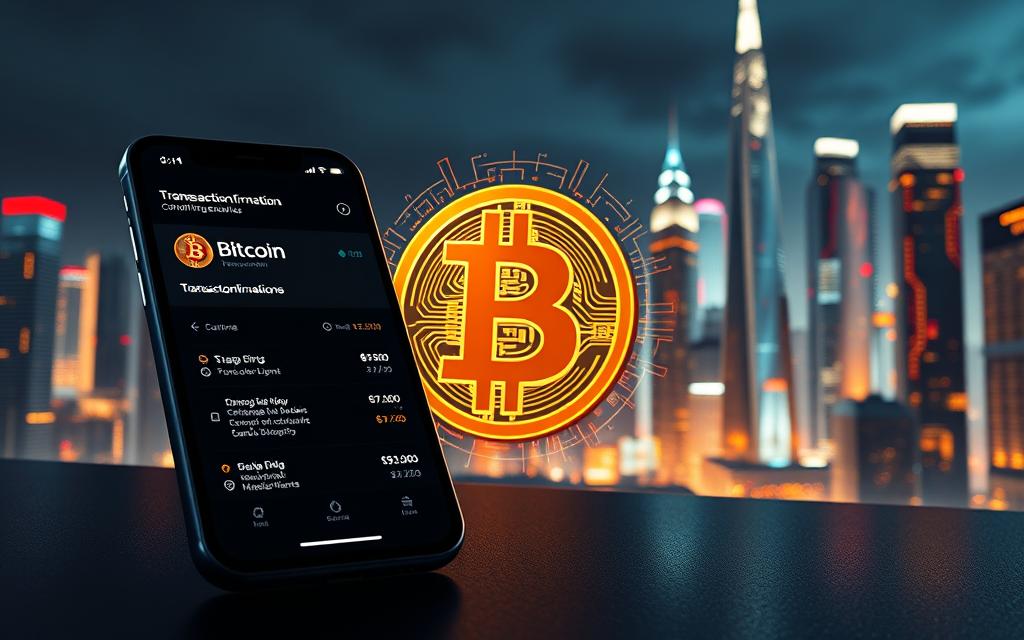
Tips for Faster Bitcoin Confirmations
For quicker Bitcoin transactions, it’s essential to understand how to optimize transaction fees and navigate network congestion. By implementing the right strategies, you can significantly reduce the time it takes for your transactions to be confirmed.
Optimizing Transaction Fees
One effective way to expedite your Bitcoin transactions is by optimizing your transaction fees. Miners prioritize transactions based on the fees attached; higher fees incentivize them to confirm your transaction sooner. Utilize fee estimation tools to determine the optimal fee level based on current network conditions. This ensures that your transaction is included in the next block, thereby speeding up the confirmation process.
Timing Your Transactions
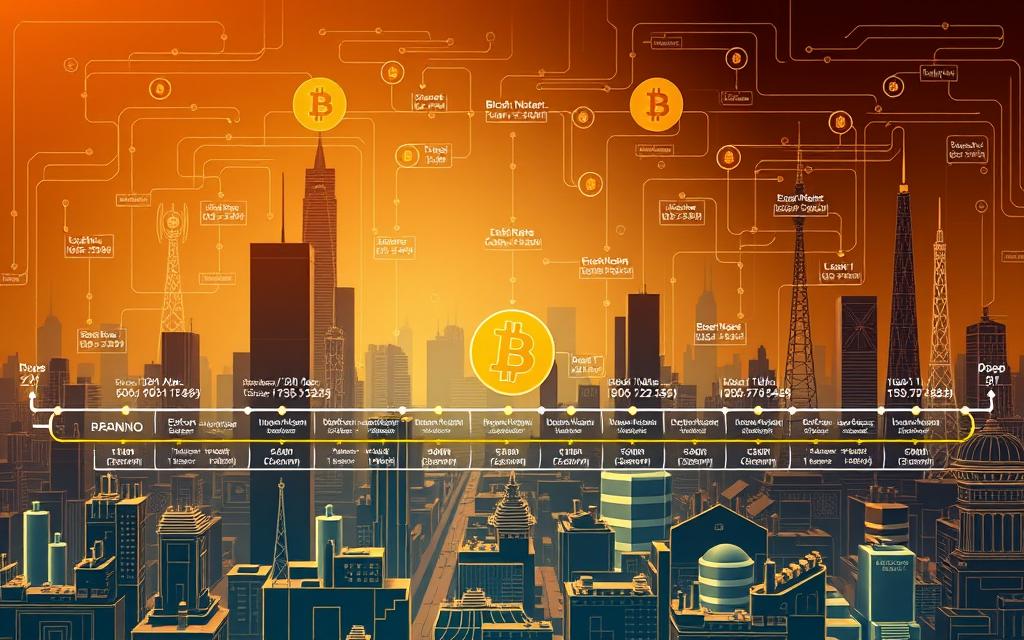 Timing is crucial when it comes to Bitcoin transactions. Sending transactions during periods of low network congestion, such as weekends or non-business hours, can lead to faster confirmations. By avoiding peak times, you reduce the competition for space in the next block, increasing the likelihood of your transaction being confirmed quickly.
Timing is crucial when it comes to Bitcoin transactions. Sending transactions during periods of low network congestion, such as weekends or non-business hours, can lead to faster confirmations. By avoiding peak times, you reduce the competition for space in the next block, increasing the likelihood of your transaction being confirmed quickly.
Comparing Bitcoin Confirmations to Other Cryptocurrencies
The confirmation processes of various cryptocurrencies, including Bitcoin, reveal distinct approaches to transaction validation. While Bitcoin requires multiple confirmations for security, other cryptocurrencies have different requirements based on their architecture and consensus mechanisms.
Ethereum Confirmation Requirements
Ethereum typically needs 30 confirmations for a transaction to be considered final. With its transition to Proof of Stake, ETH transactions now take around 5 minutes on average, thanks to its relatively fast block time.
Litecoin and Other Alternative Coins
Litecoin requires 6 transaction confirmations, with each confirmation taking about 2.5 minutes. Other alternative coins like Solana (SOL), Avalanche (AVAX), TRON (TRX), and Ripple (XRP) offer faster transaction times, with capabilities ranging from 1,500 to 65,000 transactions per second.
Stablecoins on Different Networks
Stablecoins like USDT have different confirmation requirements depending on the blockchain they operate on. For instance, USDT on the Ethereum network (ERC-20) may have different confirmation times compared to when it’s on the TRON network (TRC-20).
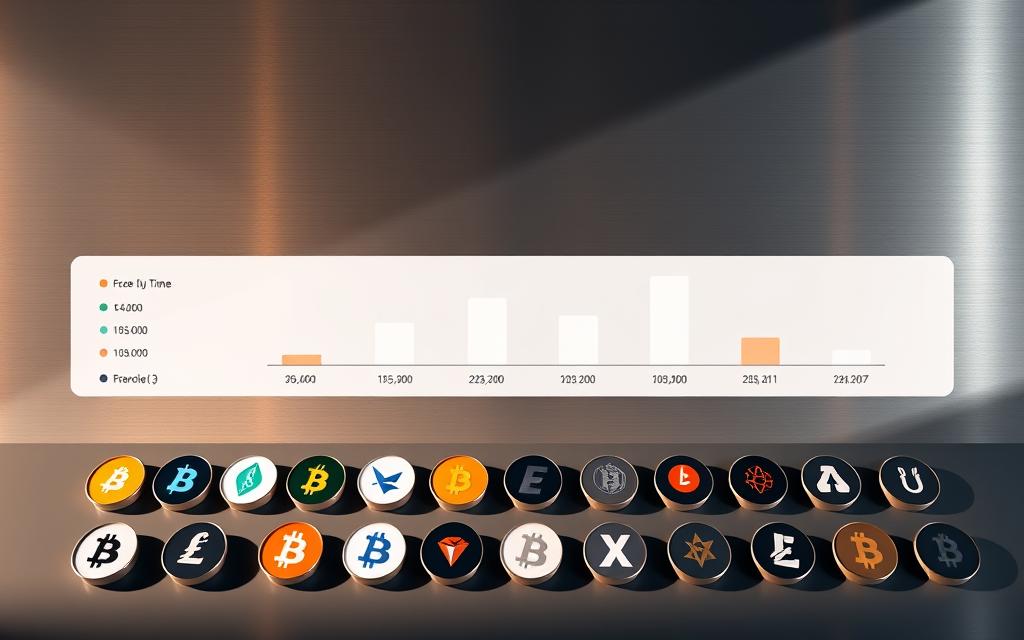
Conclusion
In conclusion, understanding Bitcoin confirmations is crucial for secure transactions. The number of confirmations required varies by transaction size: 1 for small, 3-6 for medium, and 6+ for large transactions. Factors such as network congestion and transaction fees affect confirmation times. To balance security and waiting times, users must stay informed about network conditions and adjust their strategies accordingly. As the Bitcoin network evolves, understanding confirmations remains fundamental to navigating the ecosystem securely.
FAQ
What is a Bitcoin confirmation, and why is it necessary?
A Bitcoin confirmation is the process of verifying a transaction on the blockchain, ensuring its legitimacy and preventing double-spending. This is necessary to secure the network and validate transactions.
How long does a Bitcoin transaction typically take to be confirmed?
The standard block time for Bitcoin is 10 minutes, but confirmation times can vary due to factors like network congestion and transaction fees.
What factors affect the speed of Bitcoin confirmations?
Network congestion, transaction fees, and block size limitations are key factors that influence the speed of Bitcoin confirmations. Higher fees and less congestion generally result in faster confirmations.
How can I check the status of my Bitcoin transaction confirmations?
You can use block explorers or wallet confirmation tracking to monitor the status of your Bitcoin transaction confirmations.
What is the recommended number of confirmations for different transaction sizes?
For small transactions under
FAQ
What is a Bitcoin confirmation, and why is it necessary?
A Bitcoin confirmation is the process of verifying a transaction on the blockchain, ensuring its legitimacy and preventing double-spending. This is necessary to secure the network and validate transactions.
How long does a Bitcoin transaction typically take to be confirmed?
The standard block time for Bitcoin is 10 minutes, but confirmation times can vary due to factors like network congestion and transaction fees.
What factors affect the speed of Bitcoin confirmations?
Network congestion, transaction fees, and block size limitations are key factors that influence the speed of Bitcoin confirmations. Higher fees and less congestion generally result in faster confirmations.
How can I check the status of my Bitcoin transaction confirmations?
You can use block explorers or wallet confirmation tracking to monitor the status of your Bitcoin transaction confirmations.
What is the recommended number of confirmations for different transaction sizes?
For small transactions under $1,000, one confirmation may be sufficient. For medium transactions ($1,000-$10,000), 2-3 confirmations are recommended, while large transactions over $10,000 may require 6 or more confirmations.
Can I speed up the confirmation process for my Bitcoin transaction?
Yes, you can optimize transaction fees and time your transactions strategically to potentially speed up the confirmation process.
How do Bitcoin confirmations compare to those of other cryptocurrencies?
Different cryptocurrencies have varying confirmation requirements. For example, Ethereum requires 12-20 confirmations, while Litecoin requires 6 confirmations. Stablecoins on different networks may have different requirements as well.
Are there any risks associated with waiting for Bitcoin confirmations?
Waiting for multiple confirmations reduces the risk of double-spending and ensures transaction legitimacy, but it may also delay the processing of transactions.
,000, one confirmation may be sufficient. For medium transactions (
FAQ
What is a Bitcoin confirmation, and why is it necessary?
A Bitcoin confirmation is the process of verifying a transaction on the blockchain, ensuring its legitimacy and preventing double-spending. This is necessary to secure the network and validate transactions.
How long does a Bitcoin transaction typically take to be confirmed?
The standard block time for Bitcoin is 10 minutes, but confirmation times can vary due to factors like network congestion and transaction fees.
What factors affect the speed of Bitcoin confirmations?
Network congestion, transaction fees, and block size limitations are key factors that influence the speed of Bitcoin confirmations. Higher fees and less congestion generally result in faster confirmations.
How can I check the status of my Bitcoin transaction confirmations?
You can use block explorers or wallet confirmation tracking to monitor the status of your Bitcoin transaction confirmations.
What is the recommended number of confirmations for different transaction sizes?
For small transactions under $1,000, one confirmation may be sufficient. For medium transactions ($1,000-$10,000), 2-3 confirmations are recommended, while large transactions over $10,000 may require 6 or more confirmations.
Can I speed up the confirmation process for my Bitcoin transaction?
Yes, you can optimize transaction fees and time your transactions strategically to potentially speed up the confirmation process.
How do Bitcoin confirmations compare to those of other cryptocurrencies?
Different cryptocurrencies have varying confirmation requirements. For example, Ethereum requires 12-20 confirmations, while Litecoin requires 6 confirmations. Stablecoins on different networks may have different requirements as well.
Are there any risks associated with waiting for Bitcoin confirmations?
Waiting for multiple confirmations reduces the risk of double-spending and ensures transaction legitimacy, but it may also delay the processing of transactions.
,000-,000), 2-3 confirmations are recommended, while large transactions over ,000 may require 6 or more confirmations.
Can I speed up the confirmation process for my Bitcoin transaction?
Yes, you can optimize transaction fees and time your transactions strategically to potentially speed up the confirmation process.
How do Bitcoin confirmations compare to those of other cryptocurrencies?
Different cryptocurrencies have varying confirmation requirements. For example, Ethereum requires 12-20 confirmations, while Litecoin requires 6 confirmations. Stablecoins on different networks may have different requirements as well.
Are there any risks associated with waiting for Bitcoin confirmations?
Waiting for multiple confirmations reduces the risk of double-spending and ensures transaction legitimacy, but it may also delay the processing of transactions.









